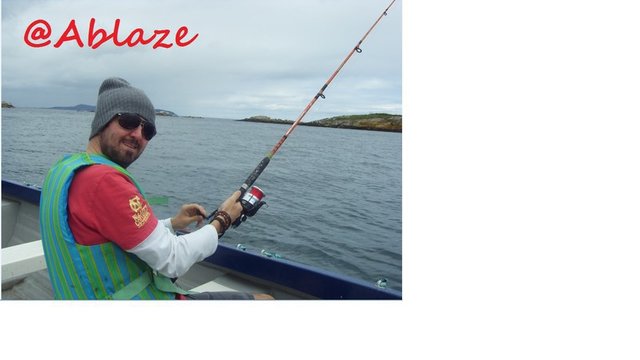Great Idea

As part of my son's homework last week, they did a litter survey, but as part of the survey they were also tasked with picking up the rubbish as well and finding a bin for it. I thought that this was an excellent practical lesson to firstly notice the litter, secondly learn that it's wrong and tranishes the local area. As an added bonus with 20 to 25 kids getting this for homework, lots of rubbish will disappear from the roads, paths and streets of my local area.
We're all well versed on the power of community here on hive in the virtual sense. This school book is distributed to 2nd class kids all around Ireland, and so the communities of our beautiful green country will pull togther and teach the next generation not to litter and also clean up some of the litter that has made it out into our urban and rural communities.
Who is littering?
I often wonder when I see litter strewn around an area, who does it? To be honest Mr. Wind has a big part to play oftentimes. Bins blow over in the windy weather and papers and plastic blow all over. We can't blame the wind for everything however, as some people do actually litter unfortunately. I've seen people of all ages and all walks of life littering and what I do is always the same. I say loudly:
"Excuse me, I think you've just lost something there sir/miss"
While pointing at the litter. In almost every instance, they embarrassingly pick up the litter and either find a bin or take it with them.
How can we stop littering?
Fines work, however they are inaffective if enough of them are not dished out and enforced. As you can see from some statistics below from 2017, only a handful of offences are penalised and fewer still enforced. So, the first thing we need is better enforcement.

Another thing you can do is call people out when you see them doing it.
Is recycling always what it seems
You recycle all our your household items and feel quite good after doing. Sure it takes longer, but it's nice to be conscious of the planet. The bin truck comes up or down your highway or byway every week or two and you never see that waste again, nor do many of us think about it. Well it turns out that some of us are exporting the problem in a con of sorts. Read the information I found in a newspaper article below to see what is actually happening to your waste.
"You drink a Coca-Cola, throw the bottle into the recycling, put the bins out on collection day and forget about it. But it doesn’t disappear. Everything you own will one day become the property of this, the waste industry, a £250bn global enterprise determined to extract every last penny of value from what remains. It starts with materials recovery facilities (MRFs) such as this one, which sort waste into its constituent parts. From there, the materials enter a labyrinthine network of brokers and traders. Some of that happens in the UK, but much of it – about half of all paper and cardboard, and two-thirds of plastics – will be loaded on to container ships to be sent to Europe or Asia for recycling. Paper and cardboard goes to mills; glass is washed and re-used or smashed and melted, like metal and plastic. Food, and anything else, is burned or sent to landfill."
"Or, at least, that’s how it used to work. Then, on the first day of 2018, China, the world’s largest market for recycled waste, essentially shut its doors. Under its National Sword policy, China prohibited 24 types of waste from entering the country, arguing that what was coming in was too contaminated. The policy shift was partly attributed to the impact of a documentary, Plastic China, which went viral before censors erased it from China’s internet. The film follows a family working in the country’s recycling industry, where humans pick through vast dunes of western waste, shredding and melting salvageable plastic into pellets that can be sold to manufacturers. It is filthy, polluting work – and badly paid. The remainder is often burned in the open air. The family lives alongside the sorting machine, their 11-year-old daughter playing with a Barbie pulled from the rubbish."
"For recyclers such as Smith, National Sword was a huge blow. “The price of cardboard has probably halved in the last 12 months,” he says. “The price of plastics has plummeted to the extent that it isn’t worth recycling. If China doesn’t take plastic, we can’t sell it.” Still, that waste has to go somewhere. The UK, like most developed nations, produces more waste than it can process at home: 230m tonnes a year – about 1.1kg per person per day. (The US, the world’s most wasteful nation, produces 2kg per person per day.) Quickly, the market began flooding any country that would take the trash: Thailand, Indonesia, Vietnam, countries with some of the world’s highest rates of what researchers call “waste mismanagement” – rubbish left or burned in open landfills, illegal sites or facilities with inadequate reporting, making its final fate difficult to trace."
That's it from me. Thanks for stopping by
The photos used throughout this post are all my own taken on my Samsung smart phone and are unedited

wow, eso es preocupante amigo @ablaze, aquí en mi país no se fomenta el reciclaje, todo se echa en la basura por igual. 😐
Me gusta esa manera de afrontarlo jajaja, siempre me ha molestado que la gente tie la basura en las calles. Que bueno que esten educando a las generaciones futuras al respecto, aquí deberían hacer lo mismo.
Saludos
Downvoting a post can decrease pending rewards and make it less visible. Common reasons:
Submit